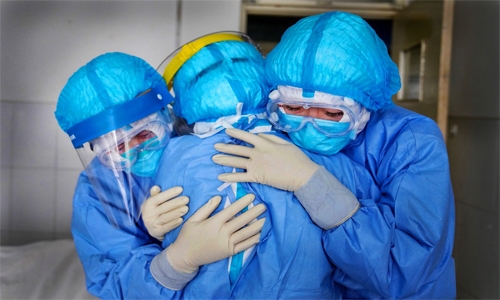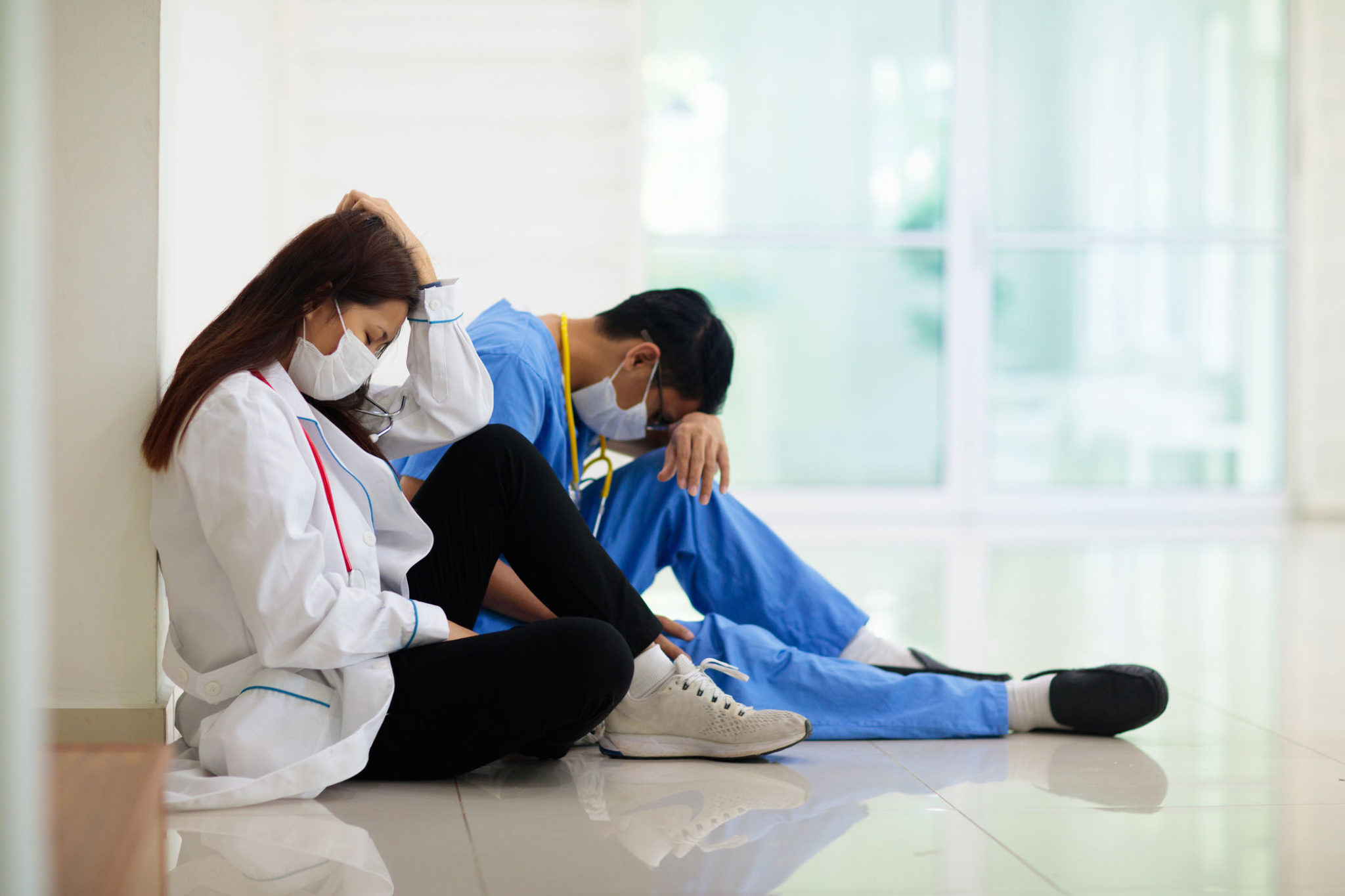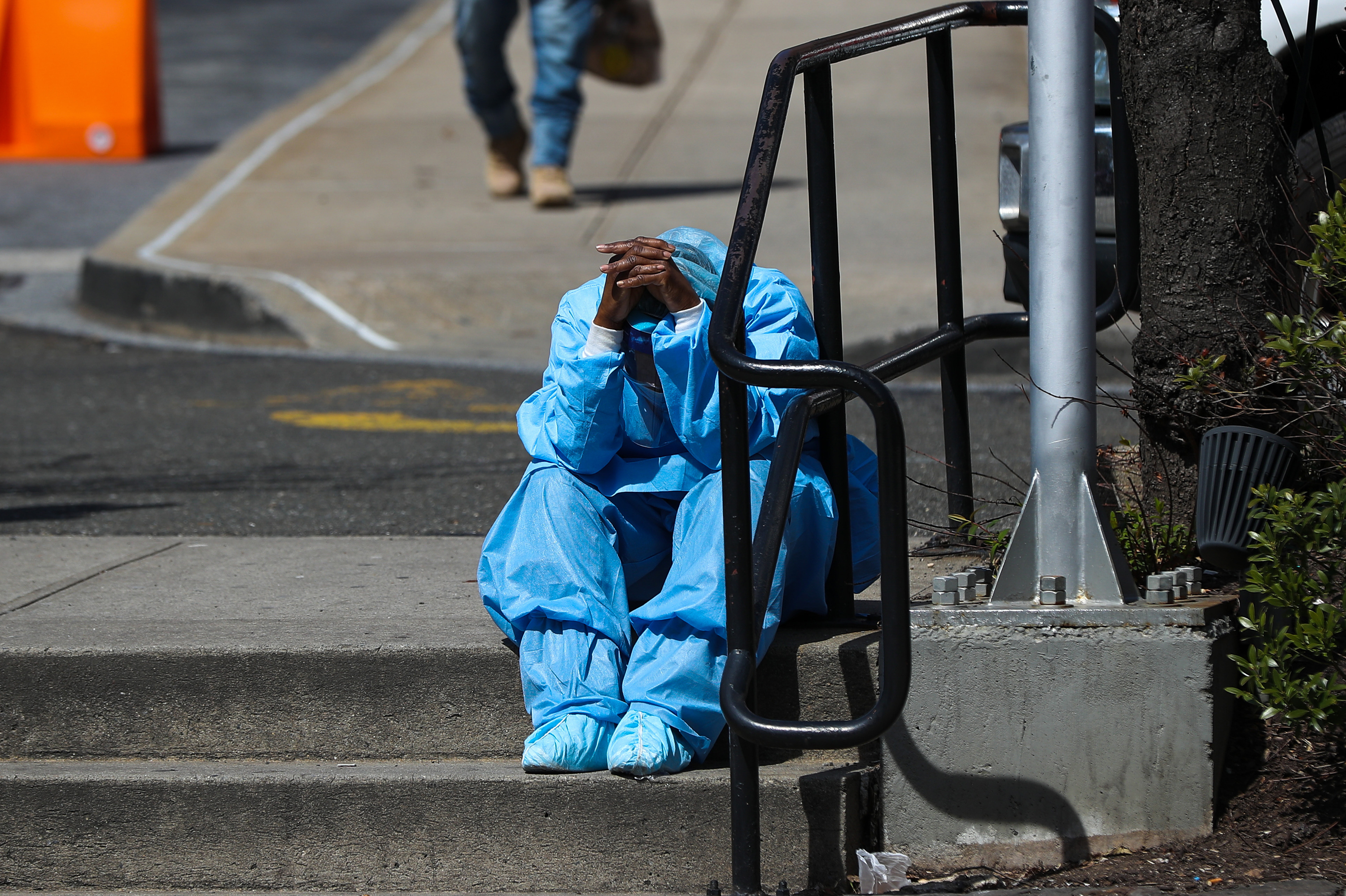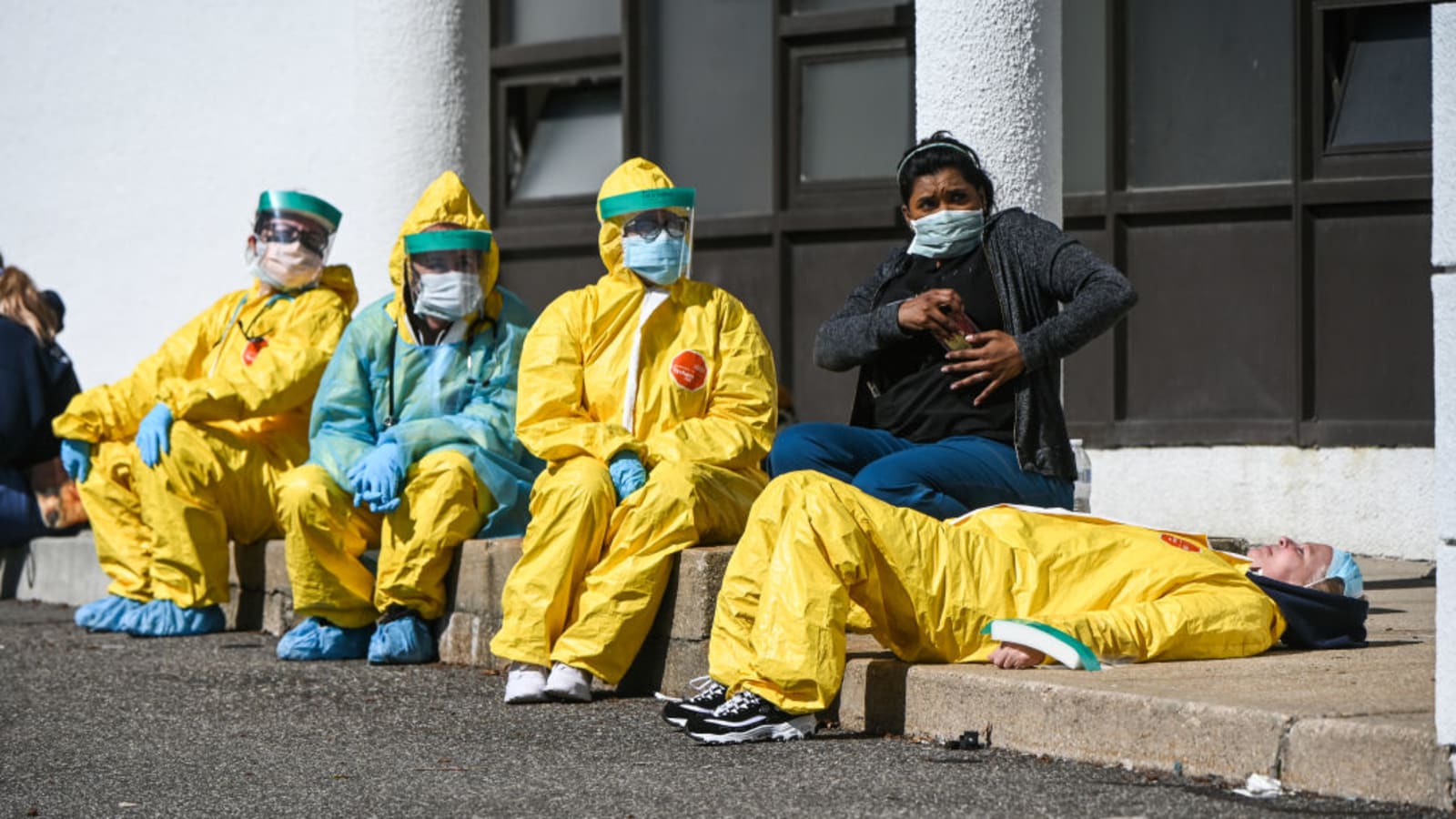Medical workers suffer from stress and depression
TDT | Manama
The Daily Tribune – www.newsofbahrain.com
To a layman, health care workers look strong and resilient in the face of the unknown. In the midst of this global pandemic, they inspire us as they go to work every day, at great personal risk, to keep others safe.
But it’s no secret they suffer some traumatic and difficult situations on the job, and the Covid-19 pandemic has taken a toll on their mental health.
Frontliners face a substantially higher risk of infection and death not only due to excessive exposure to the coronavirus but primarily being directly engaged in diagnosing, treating, or providing nursing care to patients with suspected or confirmed cases.
Facing this critical situation, healthcare workers on the front line are at risk of developing psychological distress and other mental health symptoms. This is the pandemic crisis few are talking about.
The ever-increasing number of confirmed and suspected cases, overwhelming workload, depletion of personal protection equipment, widespread media coverage, lack of specific drugs, and feelings of being inadequately supported may all contribute to the mental burden of healthcare workers.
This is the reason why the pandemic is, indeed, having severe physical and mental health impact on the health providers. They experience symptoms of depression, anxiety, insomnia, and distress, especially women, nurses
Indeed, mental health issues medical staff develops during the pandemic are one unrecognised and unaddressed area.
Various studies worldwide reveal health workers, particularly nurses and doctors, are suffering mental health problems such as stress and trauma as a result of dealing with the deadly respiratory illness.
The psychological impact on healthcare workers also includes the following conditions: overall anxiety, severe anxiety, moderate anxiety, mild anxiety, stress disorder, depression, and insomnia.
Likewise, the sudden reversal of role from healthcare worker to a patient might lead to frustration, helplessness, adjustment issues, stigma, and fear of discrimination in the medical staff. They tend to worry about their family’s safety because of a lack of testing and protective equipment.
Nurses and doctors could experience post-traumatic stress disorder or PTSD, experts say, as healthcare workers tend to experience high chances of burn- out and depression.
To stave off a mental health crisis, the World Health Organization (WHO) has urged hospitals to think of the pandemic as a long-term situation, and give workers breaks and rotate them out of high-stress positions.
WHO has also called on governments and healthcare leaders to address persistent threats to the health and safety of health workers and patients.
“The Covid-19 pandemic has reminded all of us of the vital role health workers play to relieve suffering and save lives,” said WHO director-general Dr Tedros Adhanom Ghebreyesus.
Related Posts




